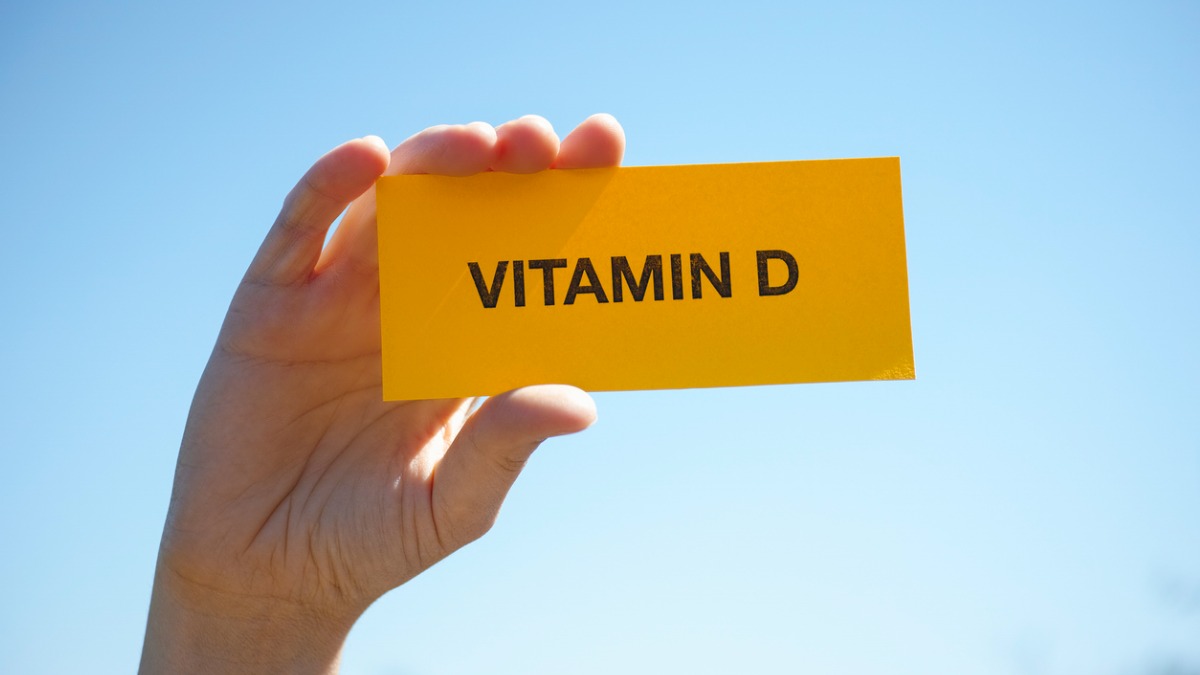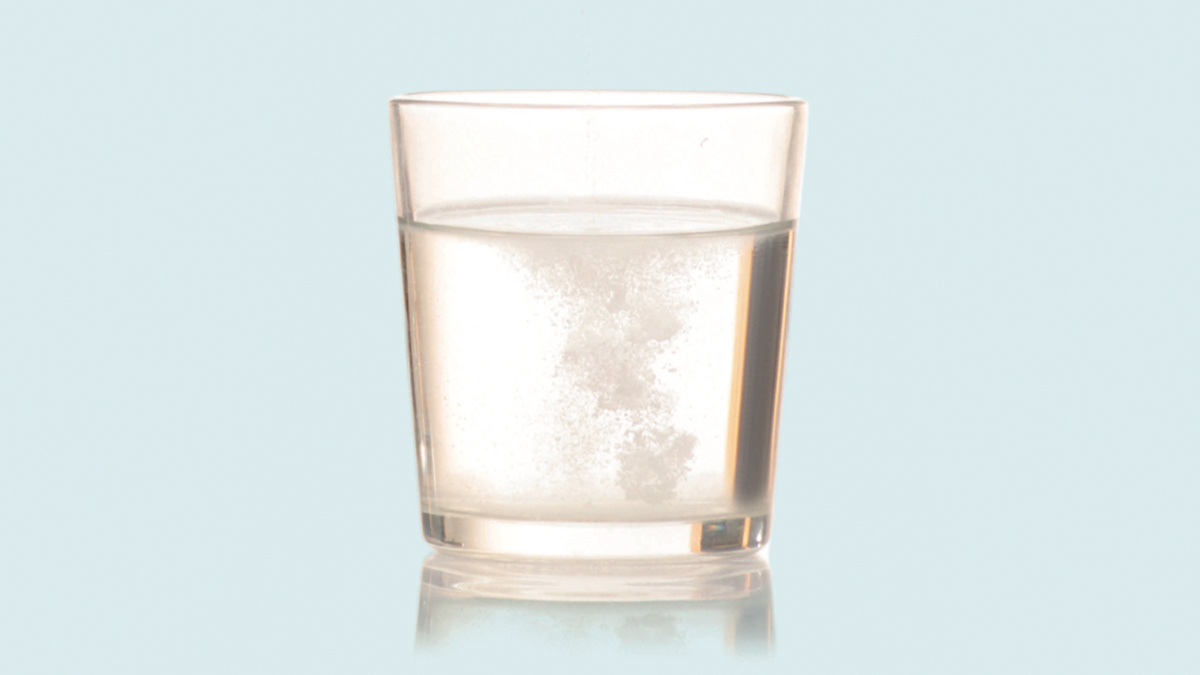There is a need to ensure adequate vitamin D intake for a range of health benefits, especially in the Irish population
The Irish Medical Journal (IMJ) highlighted in 2020 the importance of vitamin D supplementation in Ireland due to the high percentage of deficiency and reported studies showing how vitamin D prevents respiratory infections, including Covid-19, and eases the symptoms for those who get infected.
WHAT IS VITAMIN D?
Vitamin D is a fat-soluble vitamin. It helps absorb calcium and phosphorus in the intestines so it can be absorbed by the bones, keeping the skeleton strong, therefore preventing bone diseases, including osteoporosis and rickets in children. Vitamin D deficiency also causes a mild muscle weakness, thus increasing the risk of falls and hence fractures in older people. Therefore, vitamin D supplementation is often important in this age group. It is also known as the ‘good mood vitamin’ and research shows it helps fight depression.
HOW IS VITAMIN D PRODUCED?
Vitamin D can be produced in our skin, by taking supplements, or in the food we eat. The most effective way of making vitamin D is 10-to-15 minutes of direct sunlight to our skin from late March until September, which means this vitamin cannot be made in our skin during the winter months. Even the amount we absorb in the summer months can be affected by cloud coverage and rainy weather.
Older people and people with dark skin are less able to produce vitamin D from sunlight. Vitamin D is found in foods like oily fish (salmon and mackerel), liver, cereals, eggs, and dairy products. For those who cannot get enough vitamin D through diet alone, supplements as well as an adequate diet can help.
ARE WE GETTING ENOUGH VITAMIN D?
According to research carried out by The Longitudinal Study on Ageing (TILDA), there is a lack of daily intake of vitamin D across Ireland. TILDA’S main conclusions include:
- Only 15 per cent of women and 4 per cent of men take a daily vitamin D supplement.
- One-in-eight people over 50 are deficient all the time.
- Estimated that 27 per cent of adults over 70 are deficient.
- 47 per cent of adults over 85 are deficient in the winter months.
WHAT ARE THE RISK FACTORS FOR VITAMIN D DEFICIENCY?
- Being elderly.
- Physically inactive or obese.
- Not eating oily fish, cereals or dairy products.
- Staying indoors.
- Having dark skin.
WHO ELSE IS AT RISK OF VITAMIN D DEFICIENCY?
PEOPLE WITH CONDITIONS THAT LIMIT FAT ABSORPTION
Due to vitamin D being fat-soluble, its absorption is dependent on the intestinal tract’s ability to absorb dietary fat. Fat malabsorption occurs with medical conditions such as coeliac disease, Crohn’s disease, ulcerative colitis, liver disease and cystic fibrosis. In addition, some of these conditions can limit the person’s ability to eat certain foods, including dairy products (which are often fortified with vitamin D) or can eat only small amounts of these foods, thus further increasing vitamin D deficiency risk. Vitamin D levels should be checked, and supplements should be considered in patients with these conditions.
PEOPLE WITH OBESITY OR WHO HAVE UNDERGONE GASTRIC BYPASS SURGERY
People with a body mass index (BMI) of greater than 30 tend to have lower serum 25(OH)D levels than people of normal weight. 25-hydroxyvitamin D3 (25(OH)D) is the primary circulating form of vitamin D in the bloodstream, meaning it is the most abundant vitamin D metabolite, so is considered the best indicator of a person’s vitamin D status within the human body.
Obesity does not reduce the skin’s capacity to synthesise vitamin D. However, greater amounts of subcutaneous fat tend to absorb more vitamin D, so greater intakes of vitamin D are needed to achieve 25(OH)D levels similar to those of normal weight.
Obese patients who have undergone gastric bypass surgery can become vitamin D deficient. This is because for this procedure, part of the upper small intestine, where vitamin D is absorbed, is bypassed. Expert groups, including the American Association of Metabolic and Bariatric Surgery and the British Obesity and Metabolic Surgery Society, have produced guidance for vitamin D screening and monitoring, and vitamin supplementation before and after bariatric surgery is generally advised.
VITAMIN D AND RESPIRATORY INFECTIONS (INCLUDING COVID-19)
Groundbreaking Irish Study on Vitamin D benefits against Covid-19:
A study by TILDA at Trinity College Dublin (TCD) as well as research from Technological University Dublin (published in the IMJ in April 2020) indicated that vitamin D reduces risk of getting Covid-19 and helps fight it for those infected with Covid-19. TILDA is an ongoing study of people over the age of 50 in Ireland. According to its report, Vitamin D Deficiency in Ireland — Implications for Covid-19, vitamin D plays an essential role in preventing respiratory infections, reducing antibiotic use, and boosting the immune system’s response to infections.
WHAT IS THE CORRELATION BETWEEN VITAMIN D AND COVID-19?
According to the research findings, people who do not have enough vitamin D in their body have a higher chance of getting a respiratory infection and pneumonia, as well as having little or no resistance to these infections. This points out that people who do not have enough vitamin D in their body can spread these infections due to their lack of resistance. Taking vitamin D supplements may reduce the risk of getting respiratory infections, including Covid-19.
The findings indicate if Covid-19 infection occurs, vitamin D supplements may even ease symptoms and speed-up recovery times with these respiratory infections. The findings conclude that vitamin D may be able to slow down the spread of Covid-19 infection and help with resistance.
WHO SHOULD BE TAKING VITAMIN D SUPPLEMENTS?
Dr Declan Byrne, a clinical Senior Lecturer at St James’s Hospital and Trinity College Dublin, stated in 2020:
“Our findings call for the immediate supplementation of all hospital inpatients, nursing home residents and older Irish adults with vitamin D. Our findings also suggest that vitamin D supplementation in the broader adult population, and particularly in frontline healthcare workers, may further help to limit infection and flatten the Covid-19 curve.”
With this statement in mind, supplements are essential for people who are at a higher risk of deficiency. This includes frontline healthcare workers, people over 50 who do not get much sun on their skin, and those who do not eat oily fish and dairy products. In addition, many older people in residential care settings such as nursing homes rarely see sun, so vitamin D supplements may be needed.
OTHER RESEARCH
Previous research found between 40-to80 per cent of Irish people over 65 have a vitamin D deficiency. Research has found that a daily supplement of 700-to1,000IU of vitamin D reduces the risk of fractures from falls among older people by 19 per cent. The British Medical Journal showed that a dose of less than 700IU per day has no effect in reducing fractures. Research is also showing that vitamin D plays an important role in helping the immune system. It may also help prevent illnesses like diabetes, heart disease, rheumatoid arthritis, multiple sclerosis, as well as some forms of cancer.
RECOMMENDED DAILY INTAKE OF VITAMIN D
The recommended daily dose of vitamin D is suggested to be 800-2,000iu, which is 25-to-50 micrograms per day. Doses greater than 20 micrograms a day longerterm should be done under consultation from a doctor. Vitamin D3 is the easiest type of vitamin D to absorb. Vitamin D is covered with a prescription from your GP on the GMS (Medical Card) and Drug Payment Card schemes.
DRUG INTERACTIONS
Some blood pressure medications called diuretics (ie, thiazides) can reduce the urinary excretion of vitamin D, hence increasing the risk of too much vitamin D. Some epilepsy medication such as phenytoin can reduce vitamin D levels.
VITAMIN D IN INFANTS AND CHILDREN
New guidelines regarding vitamin D were released in 2010 by the Food Safety Authority of Ireland and the Department of Health. It is recommended that all infants, from birth to 12 months, whether breastfed or formula-fed, be given a daily supplement of 5µg (200IU) vitamin D. This should be provided by a supplement containing vitamin D exclusively.
These guidelines were released because children (and adults) in Ireland have been found to have low levels of vitamin D. There has been an increase in the number of cases of rickets in Ireland in recent years. While very rare in Ireland, vitamin D deficiency that manifests as rickets in infants results in a failure of bone tissue to become properly mineralised, leading to soft bones and skeletal deformities. In addition to bone deformities and pain, severe rickets (unlikely in Ireland) can cause failure to thrive, developmental delay, hypocalcaemic seizures, tetanic spasms (involuntary contraction of muscles), cardiomyopathy, and dental abnormalities.
Babies need vitamin D supplements for the following reasons: u Babies’ skin is very sensitive to the sun and should not be exposed to direct sunlight.
- Babies’ food (breast milk, formula milk or solid foods) may not have enough vitamin D.
- Between 0-12 months, babies grow very quickly and have a greater need for vitamin D to form strong bones.
Babies with African, Afro-Caribbean, Middle-Eastern or Indian ethnic backgrounds are at even higher risk of having low levels of vitamin D. Their stores of vitamin D may be particularly low when born, as their mothers’ skin may not be as efficient at making vitamin D from the low levels of sunlight experienced in Ireland.
BREASTFED INFANTS
Consumption of human milk alone does not generally meet the vitamin D requirements of infants. Breast milk provides less than 0.6-to-2.0mcg/L (25-to-78IU/L of vitamin D. The vitamin D content of human milk is linked to the mother’s vitamin D status. Studies show that the breastmilk of mothers who take supplements containing at least 50mcg (2,000IU) of vitamin D3 daily have higher levels of the nutrient in their breast milk.
WHAT TYPE OF VITAMIN D SUPPLEMENT SHOULD BE GIVEN TO A BABY?
Vitamin D3 (cholecalciferol) is the preferred form of vitamin D for infants. Liquid form is preferred. Products that contain other vitamins as well as vitamin D (such as multivitamin products) should not be used. Very high amounts of vitamin D are harmful. The recommended 5µg vitamin D a day is very safe for babies. Harmful effects only begin at levels that are five times higher than this recommended dose.
References available upon request. Supplements are not a substitute for a balance diet.
Written by Eamonn Brady MPSI (Pharmacist) owner of Whelehans Pharmacies, 38 Pearse St and Clonmore, Mullingar. Tel 04493 34591 (Pearse St) or 04493 10266 (Clonmore). www.whelehans.ie







